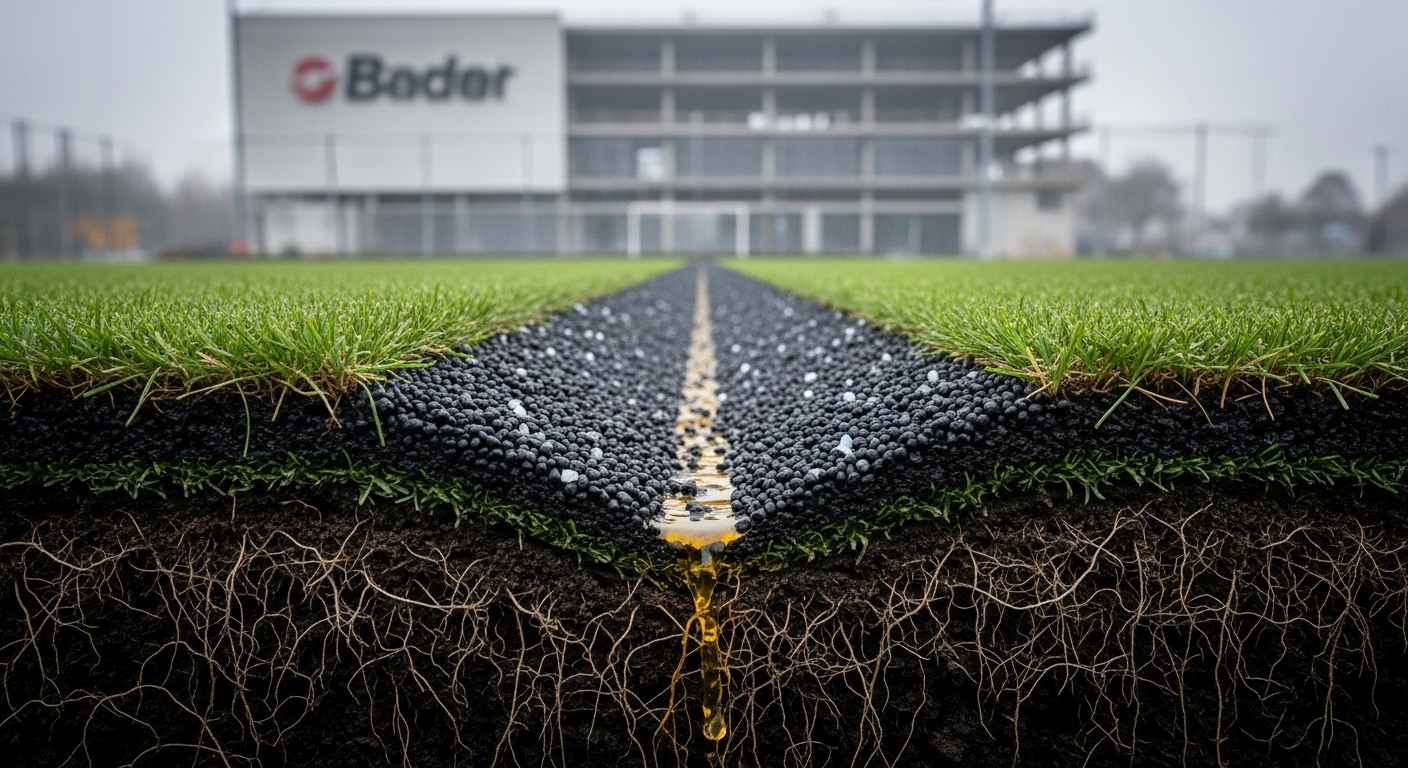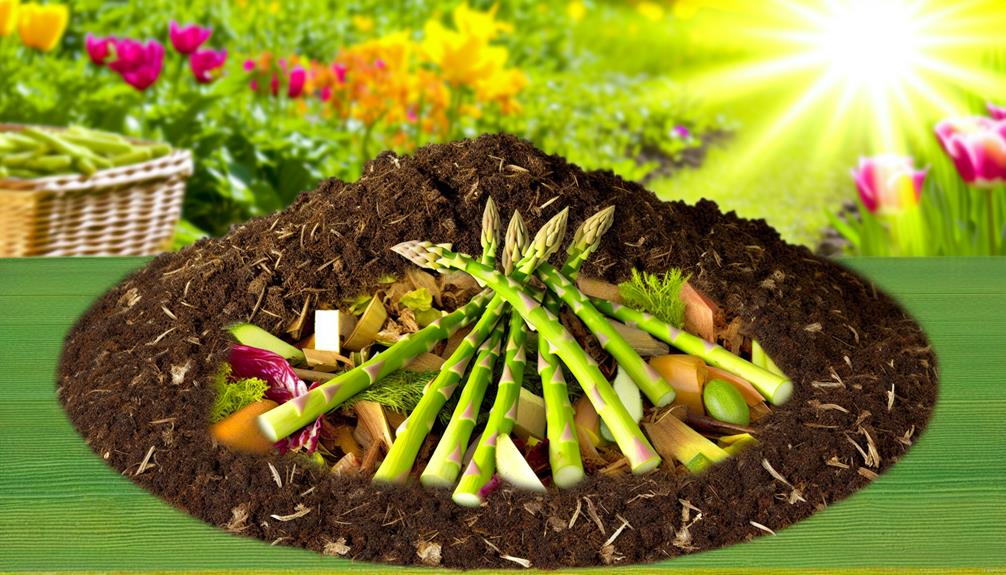

Yes, you can compost asparagus. It adds valuable nutrients and organic matter to your compost pile. However, asparagus stalks are fibrous and can break down slowly. To manage this, chop the stalks into smaller pieces, about one to two inches long. Make sure you balance them with brown materials like dry leaves to maintain the right carbon-to-nitrogen ratio.
Regularly turn your compost pile to keep it aerated and prevent anaerobic conditions. Be mindful of the moisture content to avoid attracting pests. Composting asparagus helps reduce kitchen waste and enrich your soil. For more effective composting techniques, there’s additional useful information available.
Composting asparagus offers several benefits, including enriching your soil with essential nutrients and reducing kitchen waste. When you compost asparagus, you’re adding valuable organic matter to your compost pile, which helps improve soil structure and fertility.
Asparagus is rich in nitrogen, making it a great green component to balance with brown materials like dried leaves or cardboard. By incorporating asparagus into your compost, you’ll create a nutrient-dense soil amendment that enhances plant growth and health.
Additionally, composting asparagus helps divert kitchen scraps from landfills, contributing to a more sustainable lifestyle. Make sure you chop asparagus into smaller pieces to speed up the decomposition process. This practice will help you maintain an efficient and productive composting system, benefiting your garden immensely.
Also Read: Can You Compost Bacon?
Despite its benefits, composting asparagus entails specific challenges that you should be mindful of to guarantee successful decomposition. Asparagus stalks are fibrous and tough, which makes them slow to break down in a compost pile. This can create uneven compost material and delay the overall composting process.
Additionally, asparagus peels and scraps can attract pests if not managed correctly. You need to maintain a proper balance of green and brown materials to avoid odors and unwanted critters. High moisture content in asparagus can also lead to excess water in your compost, causing anaerobic conditions.
Regularly turning your compost and mixing asparagus with other compostable items helps maintain aeration and speeds up decomposition. Pay close attention to these factors for ideal results.
Also Read: Can You Compost Azuki Beans?
To effectively compost asparagus, start by cutting the stalks into smaller pieces to accelerate the decomposition process. Aim for lengths of about one to two inches. This increases the surface area, allowing microorganisms to break down the fibers more efficiently. Be sure to remove any rubber bands or ties that might still be attached.

Next, mix the chopped asparagus with other compostable materials. Balance is vital in composting, so combine your asparagus with a mix of green materials (like fruit scraps) and brown materials (such as dried leaves). This helps maintain the right carbon-to-nitrogen ratio, promoting faster breakdown.
Also Read: Can You Compost Batteries?
For best results when composting asparagus, make sure you maintain a balanced mix of green and brown materials in your compost pile. Asparagus is a green material, rich in nitrogen. Balance it with brown materials like dry leaves or straw, which provide carbon. Chop asparagus into smaller pieces to quicken decomposition. Make sure your compost pile remains moist but not waterlogged, and turn it regularly to aerate.
Here’s a quick guide for composting asparagus:
| Tip | Green Materials | Brown Materials |
|---|---|---|
| Asparagus Pieces | High Nitrogen | Balance with Carbon |
| Moisture Level | Keep Moist | Avoid Waterlogging |
| Turning the Pile | Aerate Regularly | Mix Well |
| Decomposition Speed | Chop Small Pieces | Add Dry Leaves |
If composting asparagus isn’t feasible for you, several alternative methods can effectively manage asparagus waste.

First, consider using a garbage disposal system. This method quickly breaks down asparagus fibers, preventing clogs.
Alternatively, you can create a vegetable stock by simmering asparagus scraps with other vegetable remnants. This not only reduces waste but also provides a nutritious base for soups and sauces.
You might also consider feeding asparagus waste to animals if you have livestock like chickens or goats—they’ll appreciate the added variety in their diet.
Lastly, you can explore local waste management programs that accept organic waste. Many municipalities offer curbside pickup for organic materials, ensuring your asparagus waste is handled sustainably without composting.
Composting asparagus is both beneficial and challenging. Prepare it by chopping and mixing with other compostable materials.
Maintain a balanced compost pile to manage its fibrous texture. Regularly turn the pile for aeration and monitor moisture levels.
If composting asparagus seems too complex, consider alternative disposal methods like donating to a community compost program.
With these tips, you can effectively manage asparagus waste and contribute to a healthier environment.
